
BlockingObservable
Related Doc:
package observables






Returns the first item emitted by a specified Observable, or
NoSuchElementException if source contains no elements.
Returns the first item emitted by a specified Observable, or
NoSuchElementException if source contains no elements.
the first item emitted by the source Observable
java.util.NoSuchElementException if source contains no elements

Invoke a method on each item emitted by the Observable; block until the Observable completes.
Invoke a method on each item emitted by the Observable; block until the Observable completes.
NOTE: This will block even if the Observable is asynchronous.
This is similar to Observable.subscribe()*, but it blocks. Because it blocks it does not need the Observer.onCompleted or Observer.onError methods.
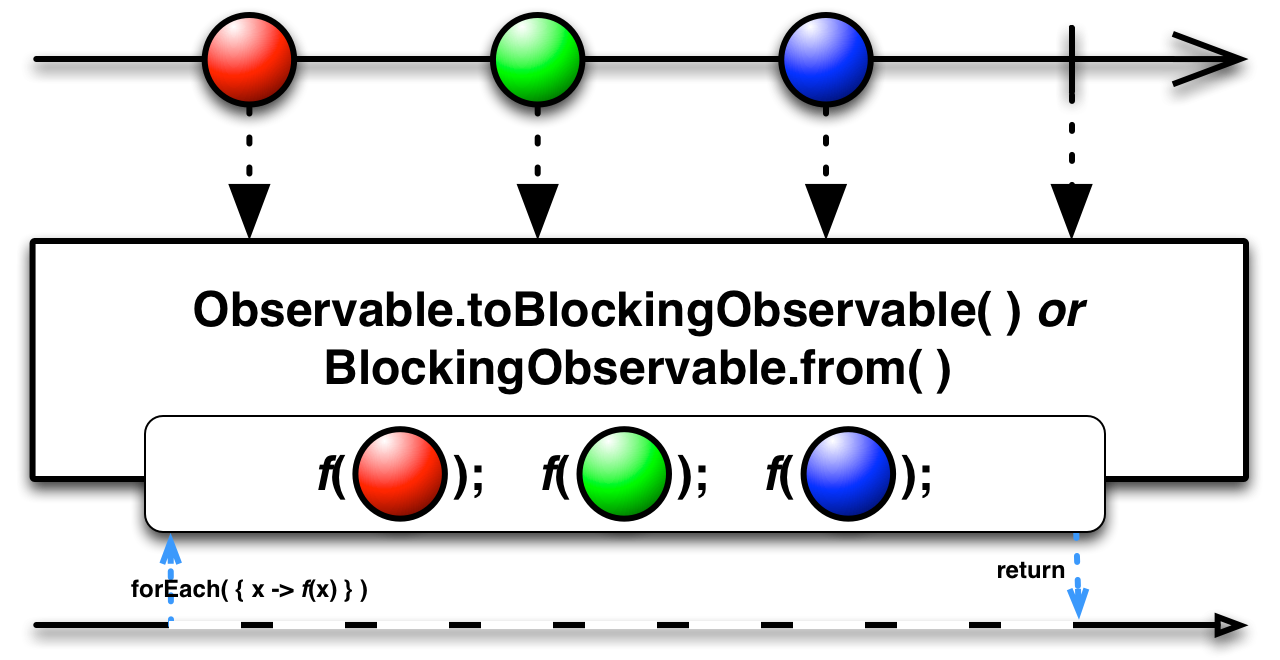
the action to invoke for every item emitted by the Observable
java.lang.RuntimeException if an error occurs


Returns the first item emitted by a specified Observable, or
NoSuchElementException if source contains no elements.
Returns the first item emitted by a specified Observable, or
NoSuchElementException if source contains no elements.
the first item emitted by the source Observable
java.util.NoSuchElementException if source contains no elements

Returns an Option with the very first item emitted by the source Observable,
or None if the source Observable is empty.
Returns an Option with the very first item emitted by the source Observable,
or None if the source Observable is empty.
an Option with the very first item from the source,
or None if the source Observable completes without emitting any item.

Returns the very first item emitted by the source Observable, or a default value if the source Observable is empty.
Returns the very first item emitted by the source Observable, or a default value if the source Observable is empty.
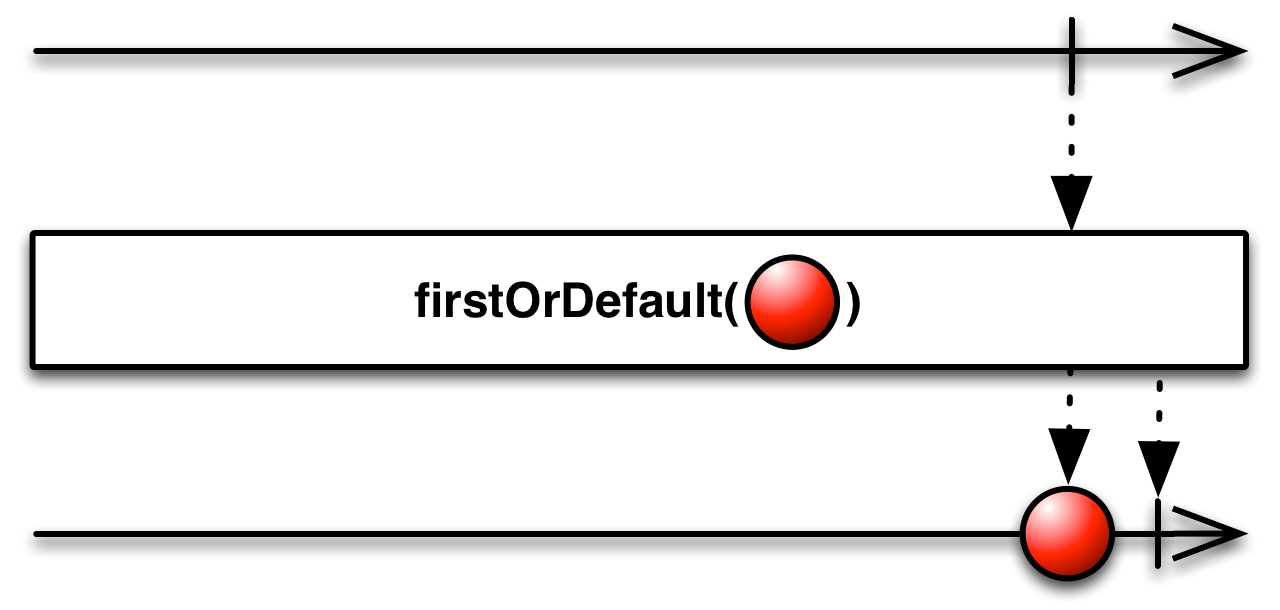
The default value to emit if the source Observable doesn't emit anything. This is a by-name parameter, so it is only evaluated if the source Observable doesn't emit anything.
the very first item from the source, or a default value if the source Observable completes without emitting any item.


Returns the last item emitted by a specified Observable, or
throws NoSuchElementException if it emits no items.
Returns the last item emitted by a specified Observable, or
throws NoSuchElementException if it emits no items.
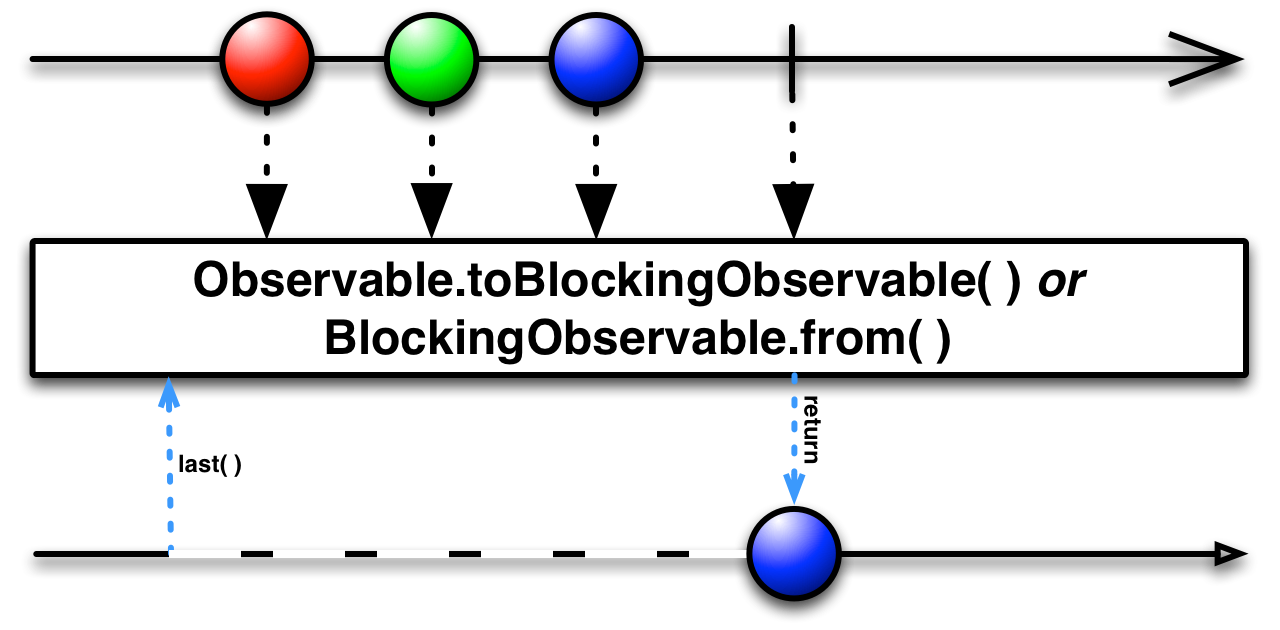
the last item emitted by the source Observable
java.util.NoSuchElementException if source contains no elements

Returns an Option with the last item emitted by the source Observable,
or None if the source Observable completes without emitting any items.
Returns an Option with the last item emitted by the source Observable,
or None if the source Observable completes without emitting any items.
an Option with the last item emitted by the source Observable,
or None if the source Observable is empty

Returns the last item emitted by the source Observable, or a default item if the source Observable completes without emitting any items.
Returns the last item emitted by the source Observable, or a default item if the source Observable completes without emitting any items.
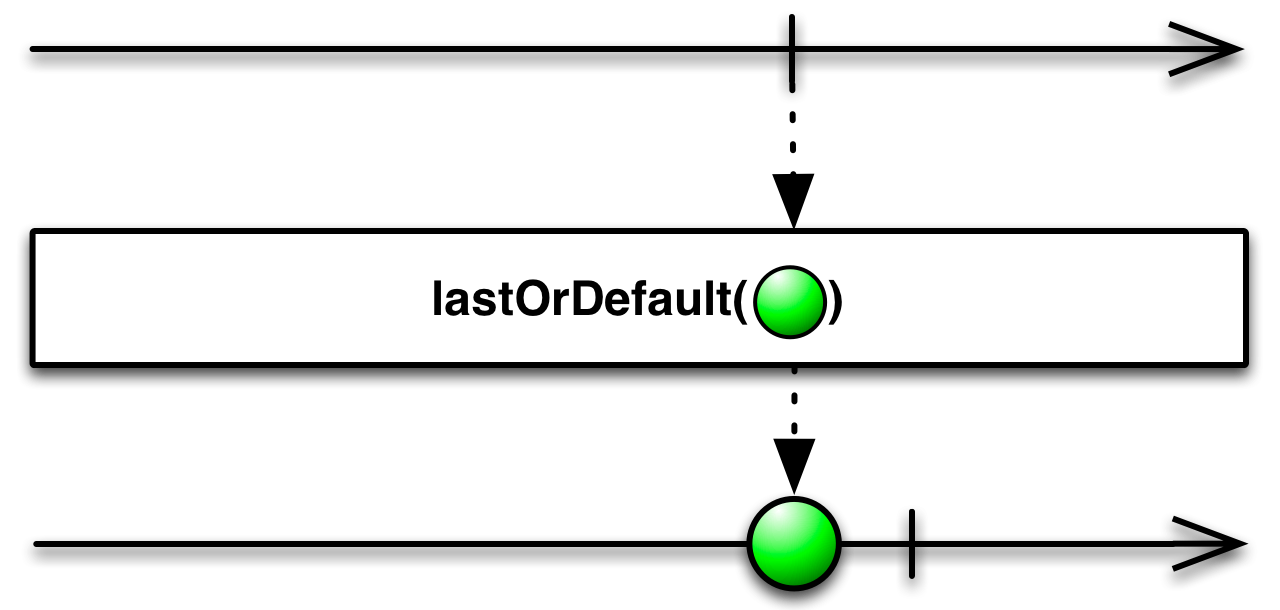
the default item to emit if the source Observable is empty. This is a by-name parameter, so it is only evaluated if the source Observable doesn't emit anything.
the last item emitted by the source Observable, or a default item if the source Observable is empty

Returns an Iterable that returns the latest item emitted by this BlockingObservable,
waiting if necessary for one to become available.
Returns an Iterable that returns the latest item emitted by this BlockingObservable,
waiting if necessary for one to become available.
If this BlockingObservable produces items faster than Iterator.next takes them,
onNext events might be skipped, but onError or onCompleted events are not.
Note also that an onNext directly followed by onCompleted might hide the onNext event.
an Iterable that always returns the latest item emitted by this BlockingObservable

Returns an Iterable that always returns the item most recently emitted by an Observable.
Returns an Iterable that always returns the item most recently emitted by an Observable.
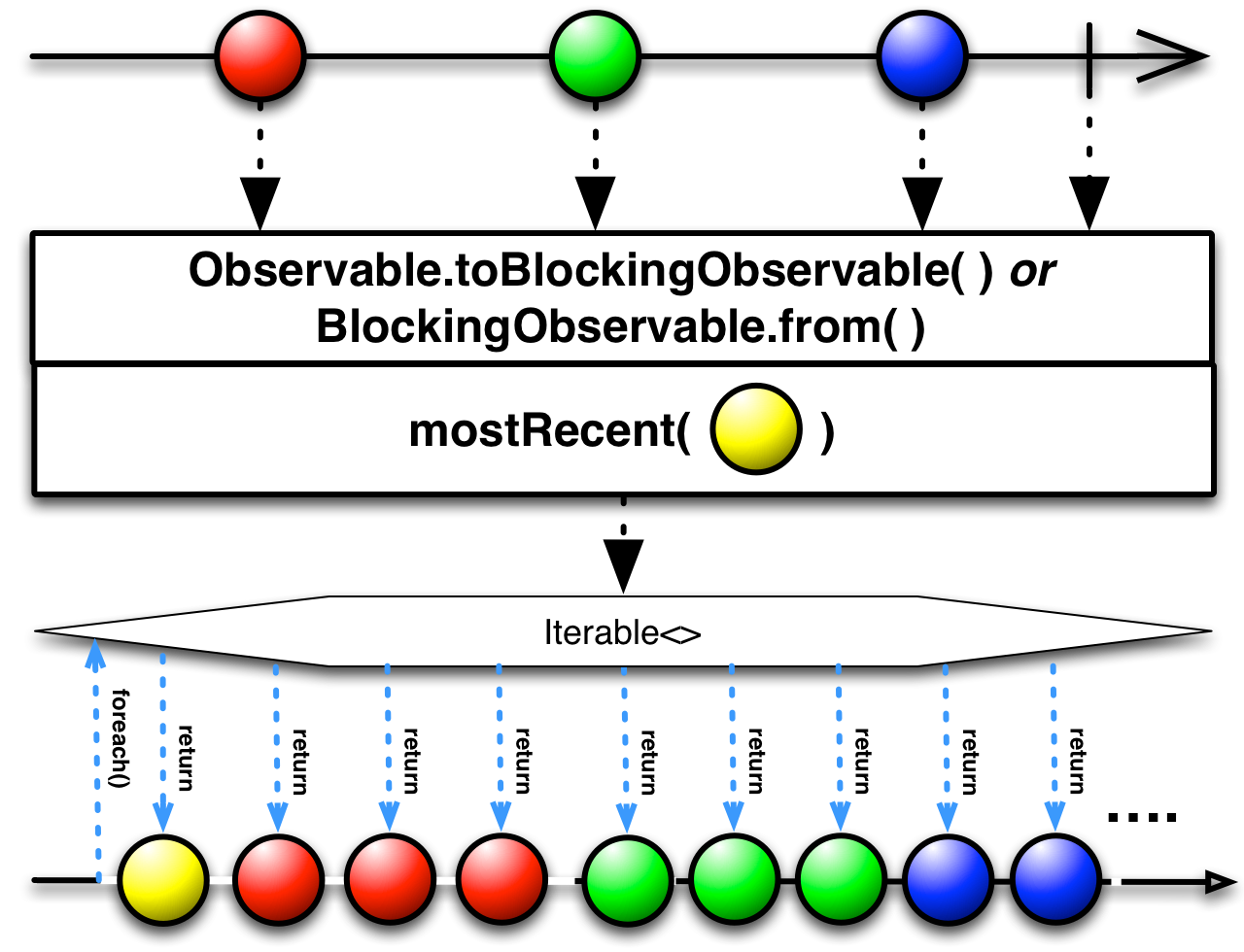
the initial value that will be yielded by the Iterable sequence if the Observable has not yet emitted an item
an Iterable that on each iteration returns the item that the Observable has most recently emitted

Returns an Iterable that blocks until the Observable emits another item,
then returns that item.
Returns an Iterable that blocks until the Observable emits another item,
then returns that item.
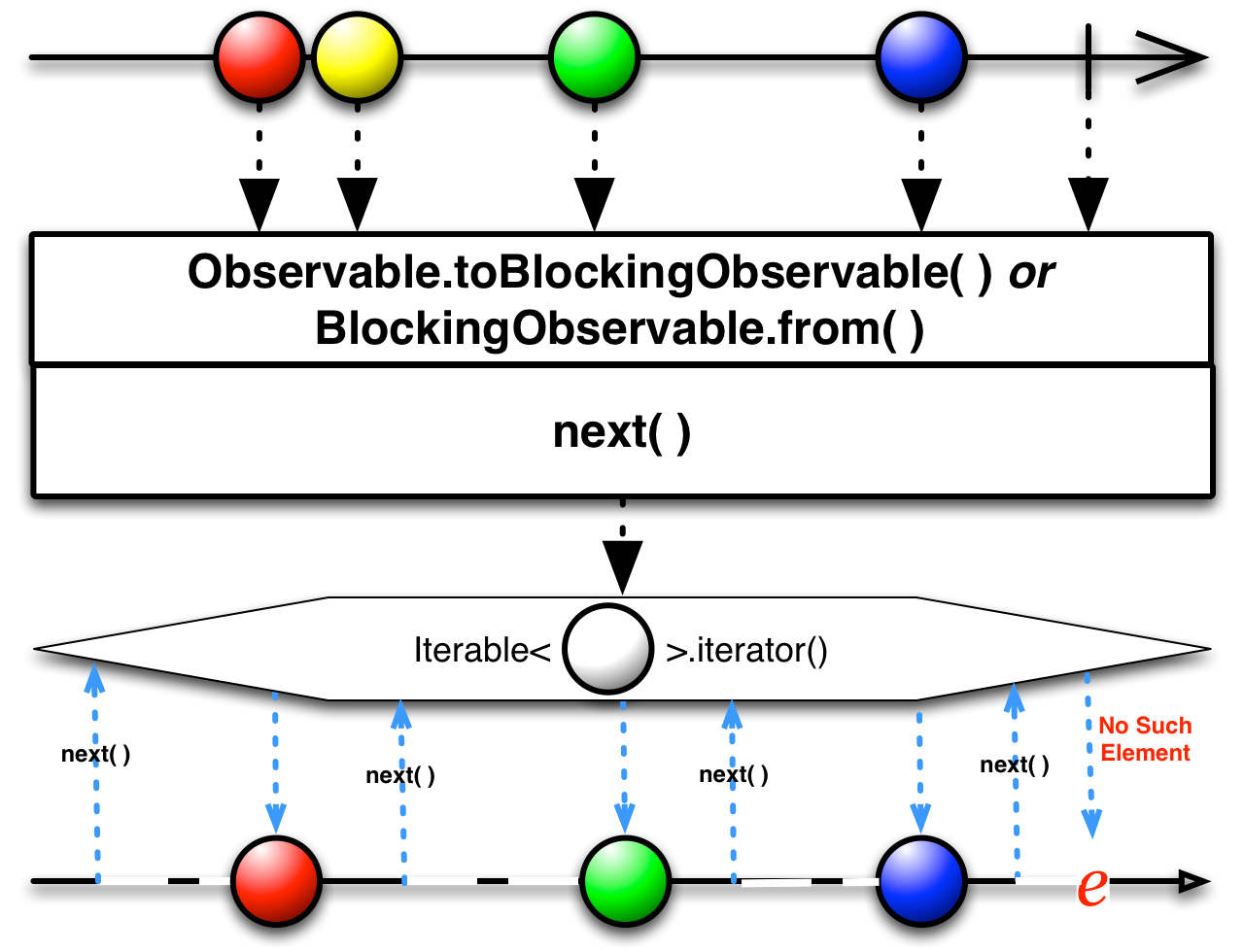
an Iterable that blocks upon each iteration until the Observable emits a new item, whereupon the Iterable returns that item


If the source Observable completes after emitting a single item, return that item.
If the source Observable completes after emitting a single item, return that item. If the source Observable
emits more than one item or no items, notify of an IllegalArgumentException or NoSuchElementException respectively.

an Observable that emits the single item emitted by the source Observable
java.lang.IllegalArgumentException if the source emits more than one item
java.util.NoSuchElementException if the source emits no items

If the source Observable completes after emitting a single item, return an Option with that item;
if the source Observable is empty, return None.
If the source Observable completes after emitting a single item, return an Option with that item;
if the source Observable is empty, return None. If the source Observable emits more than one item,
throw an IllegalArgumentException.
an Option with the single item emitted by the source Observable, or
None if the source Observable is empty
java.lang.IllegalArgumentException if the source Observable emits more than one item

If the source Observable completes after emitting a single item, return that item; if the source Observable is empty, return a default item.
If the source Observable completes after emitting a single item, return that item;
if the source Observable is empty, return a default item. If the source Observable
emits more than one item, throw an IllegalArgumentException.
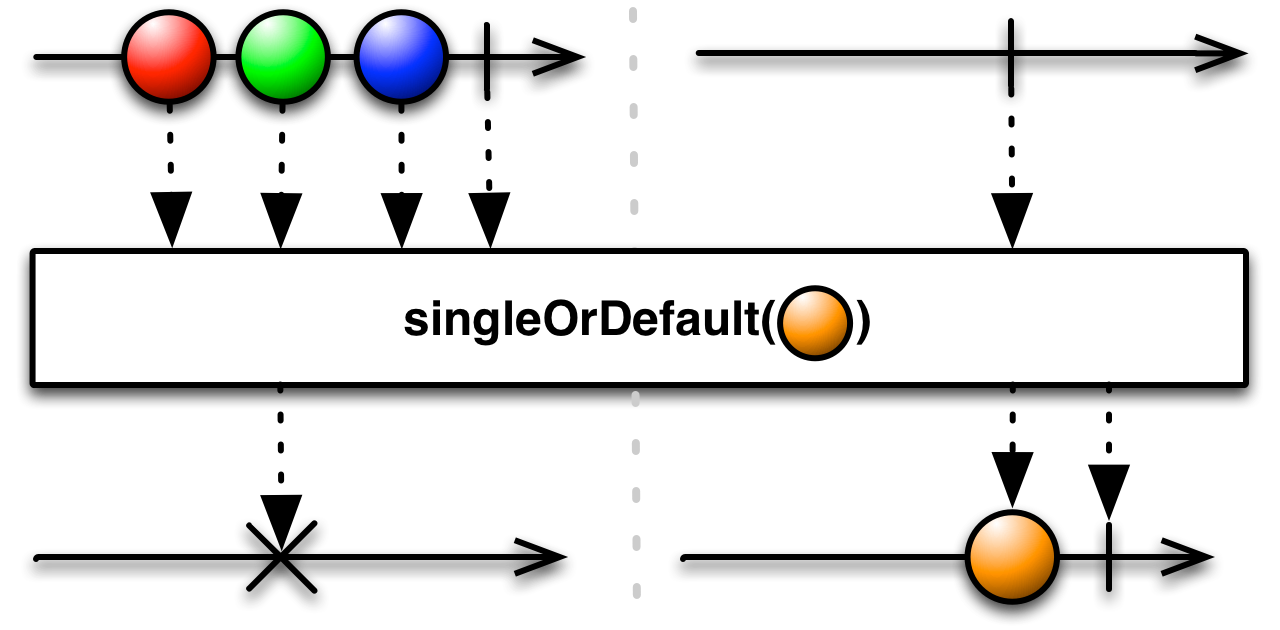
a default value to emit if the source Observable emits no item. This is a by-name parameter, so it is only evaluated if the source Observable doesn't emit anything.
the single item emitted by the source Observable, or a default item if the source Observable is empty
java.lang.IllegalArgumentException if the source Observable emits more than one item

EXPERIMENTAL Subscribes to the source and calls the Subscriber methods on the current thread.
EXPERIMENTAL Subscribes to the source and calls the Subscriber methods on the current thread.
The unsubscription and backpressure is composed through.
the Subscriber to forward events and calls to in the current thread

EXPERIMENTAL Subscribes to the source and calls back the Observer methods on the current thread.

EXPERIMENTAL Subscribes to the source and calls the given functions on the current thread.
EXPERIMENTAL Subscribes to the source and calls the given functions on the current thread.
this function will be called whenever the Observable emits an item
this function will be called if an error occurs
this function will be called when this Observable has finished emitting items

EXPERIMENTAL Subscribes to the source and calls the given functions on the current thread.
EXPERIMENTAL Subscribes to the source and calls the given functions on the current thread.
this function will be called whenever the Observable emits an item
this function will be called if an error occurs

EXPERIMENTAL Subscribes to the source and calls the given functions on the current thread, or rethrows any exception wrapped into rx.exceptions.OnErrorNotImplementedException.
EXPERIMENTAL Subscribes to the source and calls the given functions on the current thread, or rethrows any exception wrapped into rx.exceptions.OnErrorNotImplementedException.
this function will be called whenever the Observable emits an item

EXPERIMENTAL Runs the source observable to a terminal event, ignoring any values and rethrowing any exception.
EXPERIMENTAL Runs the source observable to a terminal event, ignoring any values and rethrowing any exception.

Returns a Future representing the single value emitted by this BlockingObservable.
Returns a Future representing the single value emitted by this BlockingObservable.
The returned Future will be completed with an IllegalArgumentException if the BlockingObservable
emits more than one item. And it will be completed with an NoSuchElementException if the BlockingObservable
is empty. Use Observable.toSeq.toBlocking.toFuture if you are not sure about the size of BlockingObservable
and do not want to handle these Exceptions.
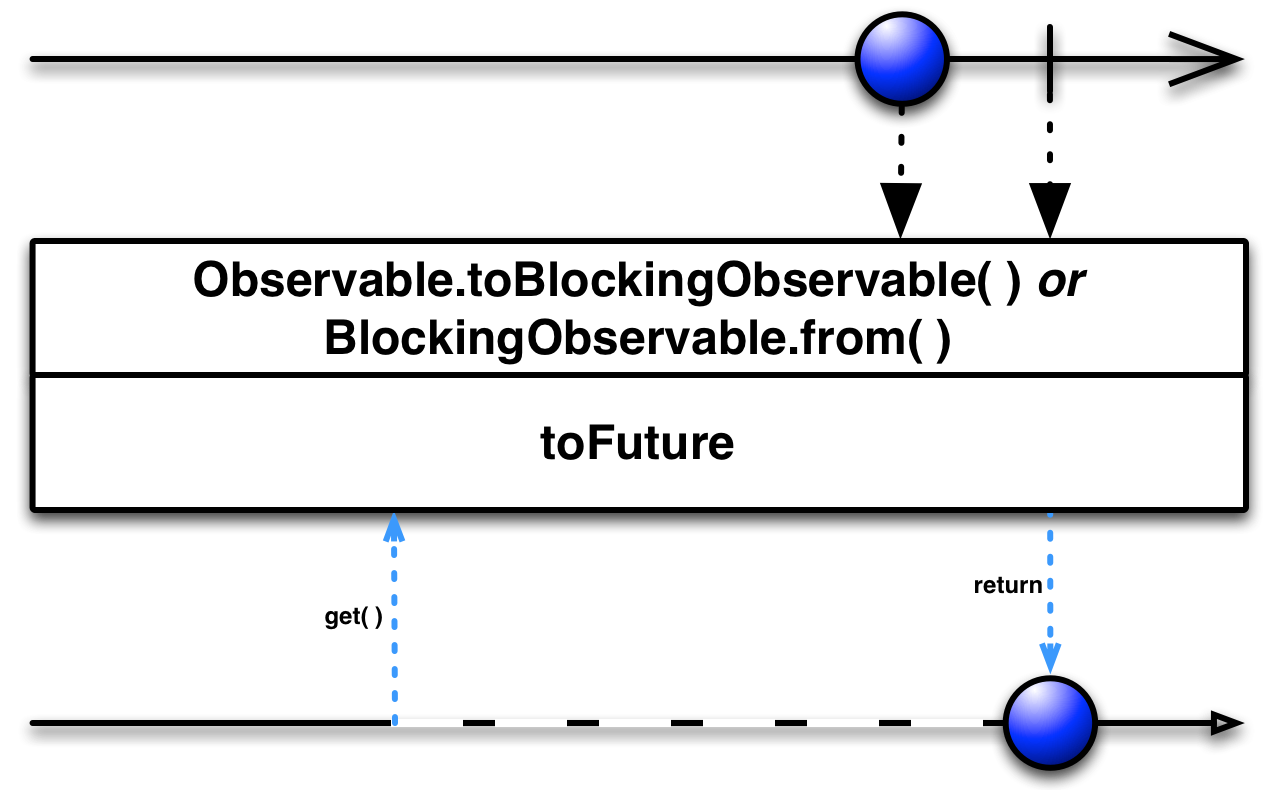
a Future that expects a single item to be emitted by this BlockingObservable.

Returns an Iterable that iterates over all items emitted by this Observable.

Returns a List that contains all items emitted by this Observable.


An Observable that provides blocking operators.
You can obtain a BlockingObservable from an Observable using rx.lang.scala.Observable.toBlocking